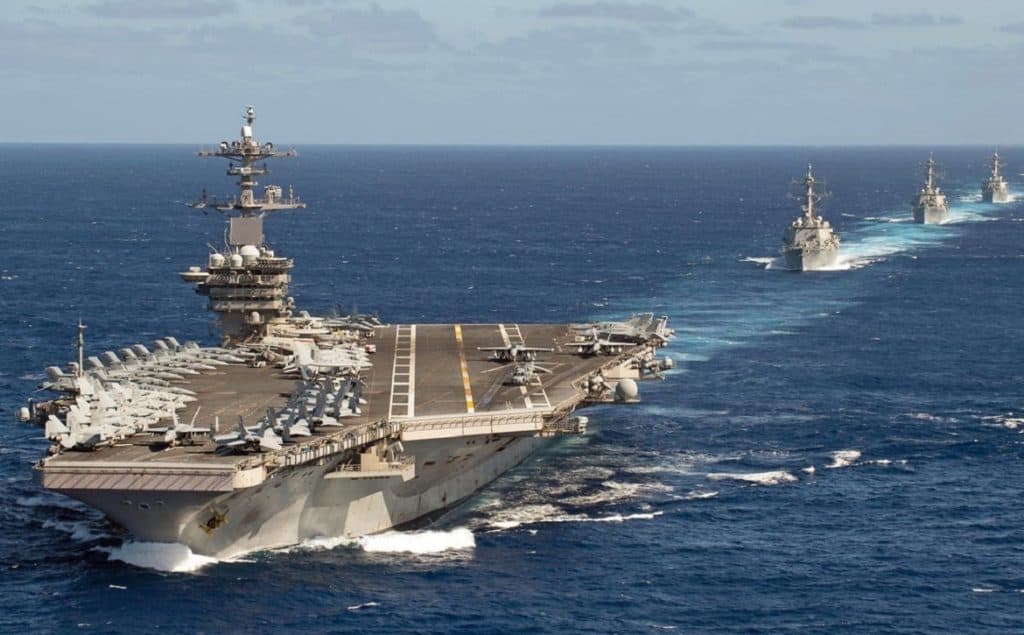By Shah Meer
It is understandable that Beijing is unwilling to embrace the status quo of current global politics and will crave a lion’s share in the future distribution of power it intends to achieve.

It is also obvious that the Chinese economic giant is clearly in the process of transforming into a military giant, and it is important to mention its naval ability to contain the United States on the high seas. But this ongoing process could be a ruin for basic human rights as Sino-American competition is on its way to the so-called Thucydides trap, and about to enter the “Fog of War”.
Unlike the Soviet Union, Beijing has its distinct way of maintaining international relations, preferring partnership to alignment, trade to coercion, and prudence to haste. It has the history of the Cold War at its disposal and has taken every stance as of today with great care. Even though international politics is unpredictable, however, China is not going to follow Perestroika and Glasnost, shrewd enough to avoid unnecessary invasions, and containing no loopholes for any act of regime change. Then how the interaction between the two great powers end? It is likely that the drums of the war will be beaten again.
Some liberals and even optimist realists may challenge this proposition based on the interaction between the Soviet Union and the US during the Cold War. They may generate an argument that the logical consequence of great power interaction is not inevitably confrontation. This logic would purely be erected on the state’s intentions and annals of history which are subject to change. In the global distribution of power, the thing that matters is interest, hegemony, and power neither intentions nor the pages of history.
Therefore, Washington is using the “Military First Approach” to deter China. It has signed a Nuclear-powered submarine deal widely known as AUKUS. It has also lifted restrictions on South Korean ballistic missile programs and stockpiling ammunition in Taiwan. Yet, XI seems to be more ambitious than Biden. Pentagon’s report released in recent weeks claims that PRC is expanding its nuclear forces, building a larger, more diversified, and more sophisticated arsenal plus tested hypersonic missiles. More severely, the PLA officials claimed that they would initiate a nuclear attack if it comes to their national security. These acts reflect nothing but make vulnerable human life.
The interaction of great powers always evolves in the orbit of a strategic reaction chain. Put simply, if power A desires sophisticated weapons, nukes, or any possible tool to increase its relative power, Power B will follow suit. This process begets more grievances and relative capability to survive in war times. The same process has also been noticed in the Sino-American competition in the Asia-Pacific. As long as this situation in hand remains, there are possible chances of confrontations capable of devastation, collateral damage and deprivation from the right to life, liberty and security of a person.
Confrontations in such conditions step in the Stability-Instability Paradox. It means that to avoid any nuclear confrontation, adversary states engage more in durable conventional battles. In this deadly situation, the first thing that the Biden Administration would do to break the resistance of China is to cut Beijing’s commercial links and impose sanctions. China in return not only receives a rationale to attack Taiwan (a small island nation where the chances of collateral damage are likely) for which it is preparing for long but also imposes counter-sanctions on the US. Since the US and China are the largest trading partners of many developing countries, their economic war can affect the global supply chain and can cause a humanitarian crisis in the least developed countries.
Along with the political environment, the global climate is also changing due to greenhouse gas emissions turning the earth warmer roughly ten times faster than the last ice-age recovery. The US and China are responsible for almost 40 percent of the global emissions, and there cannot be any global consensus against the crisis until both countries cooperate. Arguably, Climate Change has made humanity subject to extreme weathers, droughts, typhoons, and floods. Also, Holocene extinction is underway and disruption in the ecosystem and biodiversity can cause hurdles for laymen. Nevertheless, the Sino-American competition continues at the expense of the climate.
For financing its military advancement and accumulating foreign reserves, Beijing is using non-renewable energy. The New York Times pledges that PRC burns more coal than the rest of the world combined, and Foreign Affairs quotes that the Xi Administration emits carbon more than the rest of the developed world. Notwithstanding, the US has adopted the Cornwall Consensus in the recent G-7 summit. But it is hard to predict how long Biden goes with altruistic policies at the time when its global preponderance is at stake.
Thus, to prevent the dangers of devastation and extinction, the US and China must reestablish constructivist-oriented altruistic structures based on processes where they could foster mutual trust and cooperation. Going against this structure may not result in absolute or relative gains but absolute losses. It is the time to understand the limits, severity and sensitivity of the deadlock; else in the collision of Godzilla and Kong, smaller species could become subject to annihilation.
Author: Shah Meer (General Adviser at Human Rights Council of Pakistan (Balochistan Chapter)
(The views expressed in this article belong only to the author and do not necessarily reflect the views of World Geostrategic Insights).







